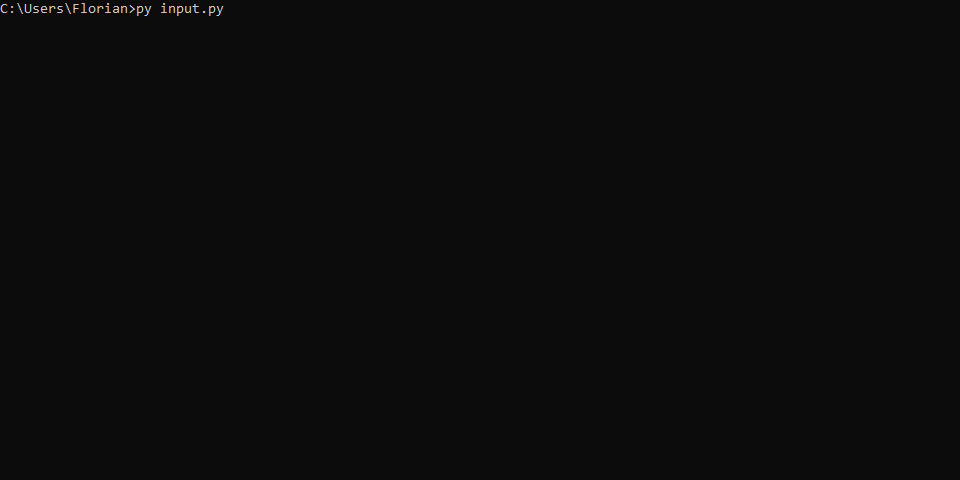Show default value for editing on Python input possible?
The standard library functions input() and raw_input() don't have this functionality. If you're using Linux you can use the readline module to define an input function that uses a prefill value and advanced line editing:
import readline
def rlinput(prompt, prefill=''):
readline.set_startup_hook(lambda: readline.insert_text(prefill))
try:
return input(prompt) # or raw_input in Python 2
finally:
readline.set_startup_hook()
I'm assuming you mean from the command-line. I've never seen initial values for command line prompts, they're usually of the form:
Folder [default] :
which in code is simply:
res = raw_input('Folder [default] : ')
res = res or 'default'
Alternatively, you can try to do something using the curses module in Python.
This works in windows.
import win32console
_stdin = win32console.GetStdHandle(win32console.STD_INPUT_HANDLE)
def input_def(prompt, default=''):
keys = []
for c in unicode(default):
evt = win32console.PyINPUT_RECORDType(win32console.KEY_EVENT)
evt.Char = c
evt.RepeatCount = 1
evt.KeyDown = True
keys.append(evt)
_stdin.WriteConsoleInput(keys)
return raw_input(prompt)
if __name__ == '__main__':
name = input_def('Folder name: ')
print
print name
I finally found a simple alternative that works on Windows and Linux. Essentially, i'm using the pyautogui module to simulate the user's input. in practice, it looks like this:
from pyautogui import typewrite
print("enter folder name: ")
typewrite("Default Value")
folder = input()

A Word of Warning:
- Theoretically, the user can insert characters in the middle of the "default" input by pressing a key before
typewritefinishes. - pyautogui is notoriously unreliable on headless systems, so make sure to provide a backup solution in case the import fails. If you run into
No module named 'Xlib', try to install thepython3-xliborpython-xlibpackage (or thexlibmodule). Running over ssh can also be a problem.
An example fallback implementation:
Since a missing X-server can logically only happen on linux, here's an implementation that uses sth's answer as fallback:
try:
from pyautogui import typewrite
autogui = True
except (ImportError, KeyError):
import readline
autogui = False
def rlinput(prompt, prefill=''):
if autogui:
print(prompt)
typewrite(prefill)
return input()
else:
readline.set_startup_hook(lambda: readline.insert_text(prefill))
try:
return input(prompt)
finally:
readline.set_startup_hook()
I would like to suggest using the clipboard to solve this problem. Paste the clipboard into the input line, edit as required, press enter. Variable clpstack is used to protect existing clipboard contents. This code is for Windows. Linux could use import clipboard.
import pyperclip as clp
clpstack=clp.paste()
clp.copy("192.168.4.1")
HOST = input("Enter telnet host: ")
clp.copy(clpstack)